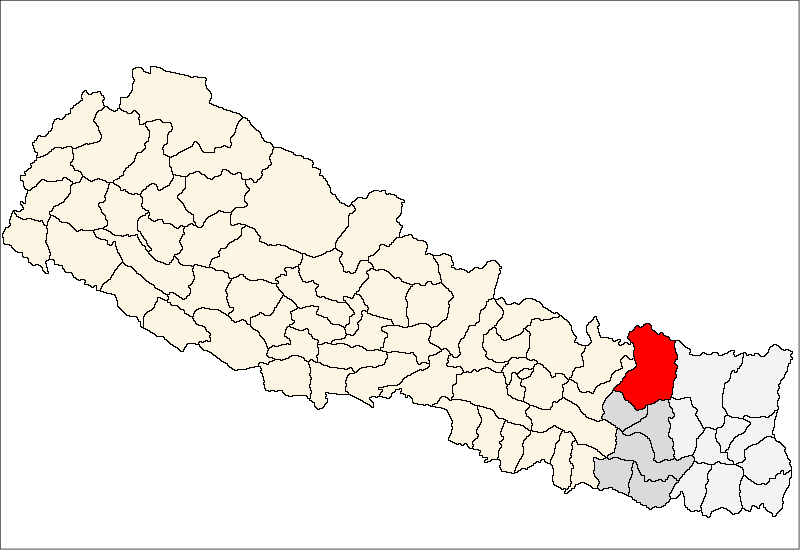
OR

More from Author
If we did not have strong guardianship of the Supreme Court, the rights of the individuals would have been grossly violated
Law and development process are often at loggerheads because both change with time. Law guides the society sometimes, other times society guides the laws. This is why countries change their laws to accommodate social changes. In other countries, the same set of laws may remain functional for a long time.
Law is essential for social development. Without law, a society becomes anarchist, authoritarian and tyrannical. Yet, society and laws do not stand in harmony most of the times. This is the case with Nepal as well.
There is uncertainty of application of law due to frequent changes of government and political system. In federal set up, each government unit seeks to devise laws according to their convenience. Local representatives might promulgate and enforce one set of laws according to their wish but their successors might change those laws.
It is natural for political leaders to change laws to accommodate their political vision because they cannot implement their political ideology without changing the laws. Promulgation of constitution, new civil and criminal codes and many other acts are actually meant to accommodate new political vision. Leaders seek to change the laws after every political movement. But change is not necessarily good for the society all the time.
Frequent changes in laws may create confusion among common people for they do not exactly know what is there in the new laws. This discourages the common people to take legal remedies even in criminal cases. Most people hesitate to go to the police and courts because of long procedural hassles and complexities.
General people do not know all laws, but as Latin maxim has it ignorance of law is no excuse for people. People may be excused for not understanding the law but they will not be excused if they commit crimes.
On the other hand, people are seriously concerned about various matters related to life and liberty and property. They are keen to know about provisions on taxation, marriage, road expansion, income provisions, change on quantum of punishment and so on.
State vs laws
Few months ago, Nepal’s Supreme Court warned the government to be sensitive about life and liberty of individuals and not to infringe on rights of individual citizens if there is no any reason for doing so while settling Khadga Bahadur Bishwokarma ‘Prakanda’s case. But even despite release orders from the court, police arrested him under instructions from Ministry of Home Affairs. Ultimately, court’s order prevailed and he was released.
In another case, the Supreme Court instructed the government to follow the rules and regulations in relation to acquiring individuals’ land for public purpose by providing adequate compensation. In a case related to road expansion, filed by Santwana Subedi and Sunita Paudel, the apex court directed the authorities to ensure compensation while acquiring private property for public purpose and follow the suitable process for acquiring private land.
Despite constitutional guarantee, state authorities sometimes tend not to pay proper compensation to the owners but want their lands for public purpose anyway.
Taking private property without paying compensation is an unexpected event in a democratic society. Justices Ishwor Prasad Khatiwada and Dr Ananda Mohan Bhattarai argue that taking hold of private properties without paying compensation is against the rule of law and courts do not allow such breach of law.
Likewise, a three member full bench of Supreme Court justices Kedar Prasad Chalise, Harikrishna Karki and Purusottam Bhandari has issued order that the government can acquire the private land for public purpose such as for expansion of road but adequate compensation must be paid. But more often than not the government and government agencies tend to disregard such calls.
Constitution has granted a number of fundamental rights to the citizens but they have not been properly executed. In fact, government authorities are not sensitive enough to implement fundamental rights of citizens. Parliament has promulgated half a dozen of laws to ensure execution of various fundamental rights granted by the constitution. But no one knows if those laws will be properly implemented.
The Supreme Court has been warning the government to be serious about protecting people’s rights granted by the constitution but government agencies often tend not to heed those warnings.
The government has no right to infringe on liberty of any individual nor seize property illegally. Even during the difficult times like dictatorship of king and insurgency, our courts have stood in favor of protecting the rights of the citizens no matter whether they are related to political freedom or social or economic rights.
English jurist Jeremy Bentham has underlined the significance of lawyers. “The power of the lawyer is in the uncertainty of the law,” he said. If we did not have strong guardianship of the Supreme Court, the rights of the individuals would have been grossly violated.
Thankfully, our judiciary is strong enough to safeguard the rights of individuals. As a result, we are able to enjoy at least some of our rights.
luitelananta@gmail.com
You May Like This

Cash fine of up to Rs 200,000 proposed for misconduct by online business operators
KATHMANDU, Jan 3: The government has sought to fine up to Rs 200,000 those traders who carry out online business... Read More...

The palanquin press
The justice system has had a checkered past in Nepal. The chieftain of Gorkha is publicly celebrated for administering victors’... Read More...

Kathmandu School of Law wins 58th Jessup International Law Moot Court Competition
KATHMANDU, March 7: Kathmandu School of Law won the national round of the 58th Philip C. Jessup international Law Moot Court... Read More...





Just In
- NEPSE gains 14.33 points, while daily turnover inclines to Rs 2.68 billion
- Tourists suffer after flight disruption due to adverse weather in Solukhumbu district
- Vote count update: NC maintains lead in Ilam-2
- NAC's plane lands at TIA after its maintenance in Israel
- Indian Ambassador assures of promoting India's investment in Nepal
- Freak accident involving self-made pistol leaves young man injured in Banke
- Global Shapers Community Kathmandu set to host second edition of Global Talk Series
- CNI President Agrawal highlights Nepal's conducive investment climate at Investment Summit















Leave A Comment